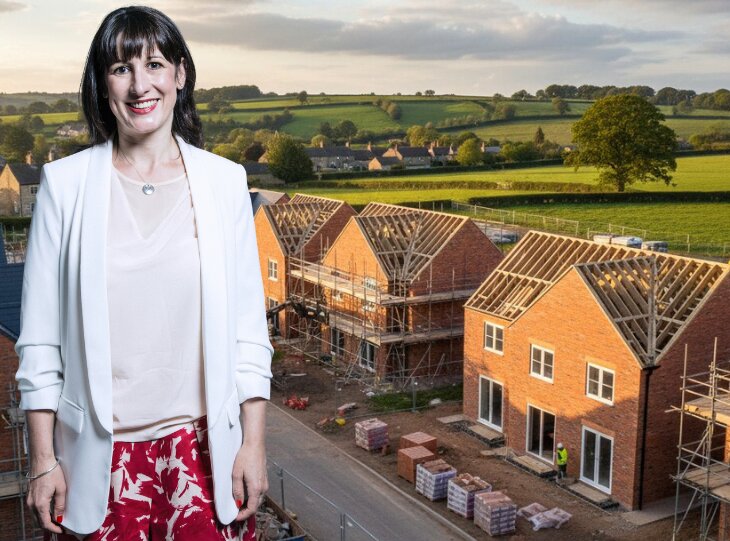Chancellor Rachel Reeves has pledged that social housing will be central to Labour’s plans to address what she described as “one of the greatest challenges that we face” – the housing crisis.
Speaking at the Labour Party Conference in Liverpool yesterday, Reeves said the Government will build 1.5 million new homes during this Parliament, arguing that “every family deserves the safety and security of a home”.
She confirmed that £40m was allocated in the most recent Spending Review to support social housing and stressed that delivery at scale would depend on its expansion.
“Don’t let anyone tell you there’s no difference between Labour and the Conservatives,” she told delegates, repeating a line that underpinned her speech.
STRETCHED AFFORDABILITY
The Chancellor’s remarks come as pressure mounts on the Government to accelerate supply, with housing completions falling short of previous targets and affordability stretched across much of the country.
Industry figures welcomed the ambition but warned of risks if policy shifts create unintended consequences.
FOOT ON THE ACCELERATOR

Kevin Shaw, National Sales Managing Director at estate agency group LRG, says the pledge to build 1.5 million homes, alongside commitments on planning reform and new towns, shows “real intent to put a foot on the accelerator”.
However, he cautions that changes to property taxation could undermine progress: “Stamp duty already acts as a tax on mobility, and further constraints could slow transactions, dampen confidence and undermine the wider growth they want housing to deliver.”
Shaw adds that for housing to act as “an engine for economic renewal”, both the new-build and resale markets must be supported in tandem.
Reeves’s comments set the tone for a broader housing strategy expected to be unveiled in the coming months, with delivery mechanisms – including planning reform, land release, and the role of local authorities and housing associations – still to be clarified.
LACK OF DETAIL

Nick Sanderson, Chief Executive at Audley Group, says: “Despite the urgency expressed, there remains a lack of detail on the types of homes that will be delivered under the 1.5 million homes target.
“Any house building and updated plans must fuel the delivery of the homes that our housing market needs, and that’s later living properties.
“Policymakers must go further than they have done today and mandate that every large-scale housing development includes a provision of specialist housing for older people.”
And he adds: “Given the Older People’s Housing Taskforce put together by the Government last year highlighted the challenges older people face and the growing need to build age-specific properties to cater to their needs, I hope that we do hear more from the Chancellor about how this will be included in the vision for new homes.
“Only then can the government deliver not only housebuilding targets, but a sustainable housing market for all generations.”
OPINION: MUCH OF THE SPEECH WAS JUST RE-PACKAGED POLICIES

Faraz Baber, Chief Operating Officer, Lanpro says that the Chancellor’s speech to Labour Party Conference rightly put housing and planning at the centre of economic renewal.
Reaffirming the government’s 1.5 million homes target is welcome, and it is encouraging to hear planning referenced from the Treasury rather than left solely to the MHCLG. But beyond restating existing pledges, the detail on how this ambition will be met was thin.
Much of what we heard was a re-packaging of previously announced policies – the £39bn social and affordable housing programme, first revealed in the Spring Statement, and reference to ongoing planning reform. These are important, but implementation and funding mechanisms now matter more than statements of intent.
GOVERNMENT MUST GO FURTHER
To unlock housing delivery at the scale promised, government must go further. Fiscal tools are essential – support for first-time buyers to stimulate demand, forward funding of major infrastructure to make sites viable, and measures such as Tax Increment Financing and local retention of business rates to enable places to invest in growth. Equally, cumulative planning costs and over-regulation must be tackled if development is to move at pace.
Announcements on Northern Powerhouse Rail and wider transport investment are welcome.
“Infrastructure is the foundation for housing growth.”
Infrastructure is the foundation for housing growth and must underpin new settlements, including the twelve new towns unveiled yesterday. But delivery must avoid the cost overruns and drift that undermined HS2, with clear return-on-investment analysis.
Finally, the Youth Guarantee could help address skills shortages if aligned with construction and planning apprenticeships – but the recent scrapping of level 7 planning apprenticeships highlights a worrying lack of joined-up thinking which we are seeing on too many levels.
Planning reform matters. But without fiscal firepower and clear delivery mechanisms, the ambition of 1.5 million homes risks remaining rhetoric rather than reality.










